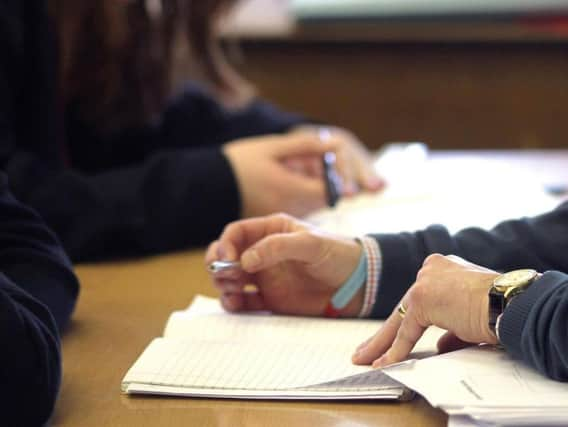Children should be taught to analyse digital texts in the same way as classic literature to stem fake news, say experts


The call comes in the wake of research conducted on behalf of the literacy programme, NewsWise, in which half of parents questioned admitted they were worried about the impact that misinformation was having on their children’s lives.
However, two in five of the 1,000 parents surveyed also admitted to falling for fake news themselves, with a similar number acknowledging that they never watch, listen to or read the news with their child at home.
Advertisement
Hide AdAdvertisement
Hide AdElli Narewska, NewsWise’s digital programme manager, said: “It is a real problem. Youngsters now access news in ways their parents probably never will and it is very easy for them to believe what they read online and via social media outlets like Snapchat and Instagram is true.
“However, it needn’t be that way. In English lessons, children are already encouraged to ask questions about the author of a particular novel or poem and are taught to think critically about whether they might have any ulterior motives. When it comes to these more traditional texts, they are really skilled in reading between the lines and assessing whether the reader is being manipulated in a certain way.
“Now, we need to find a way to ensure that they are making those same critical judgments when it comes to the digital world. While this isn’t something which can be solved in classrooms alone, teachers do have a vital part to play in helping stem the tide of fake news and we do need to think about including digital texts as part of the English curriculum.”
Funded by Google, NewsWise is the brainchild of The Guardian Foundation, the National Literacy Trust and the PSHE Association, and since it was launched in April last year it has worked with more than 2,500 youngsters in schools across the country.
Advertisement
Hide AdAdvertisement
Hide AdMs Narewska added: “What’s really worrying about this latest research is that it shows parents from the most disadvantaged areas are more likely to never watch, listen to or read news with their children than those from more affluent families.
“We do need to reduce that inequality, both by encouraging parents to start discussing what’s happening in the news at home and by ensuring that they have the support they need to feel confident in doing that.”
While the kind of fake news stories children typically believe to be true – from April Fool’s jokes to celebrity gossip – can appear to be trivial, their inability to differentiate between true and false information has potentially serious consequences as they grow up.
Ms Narewska said: “A few years ago, a website was launched about the plight of the Pacific Northwest Tree Octopus. It went viral and campaigns were being launched to save it.
Advertisement
Hide AdAdvertisement
Hide Ad“When children saw the images and read how it was on the brink of extinction many of them believed it, even though they knew that an octopus lives in the sea not a tree.
“It was a really stark example of how something which is obviously fictitious can suddenly be talked of as if it was fact.
“This is not something which is going to go away. If we are to ensure children today grow up knowing how to spot fake news so they don’t fall victims to scams and hoaxes, then we need to act right now.”